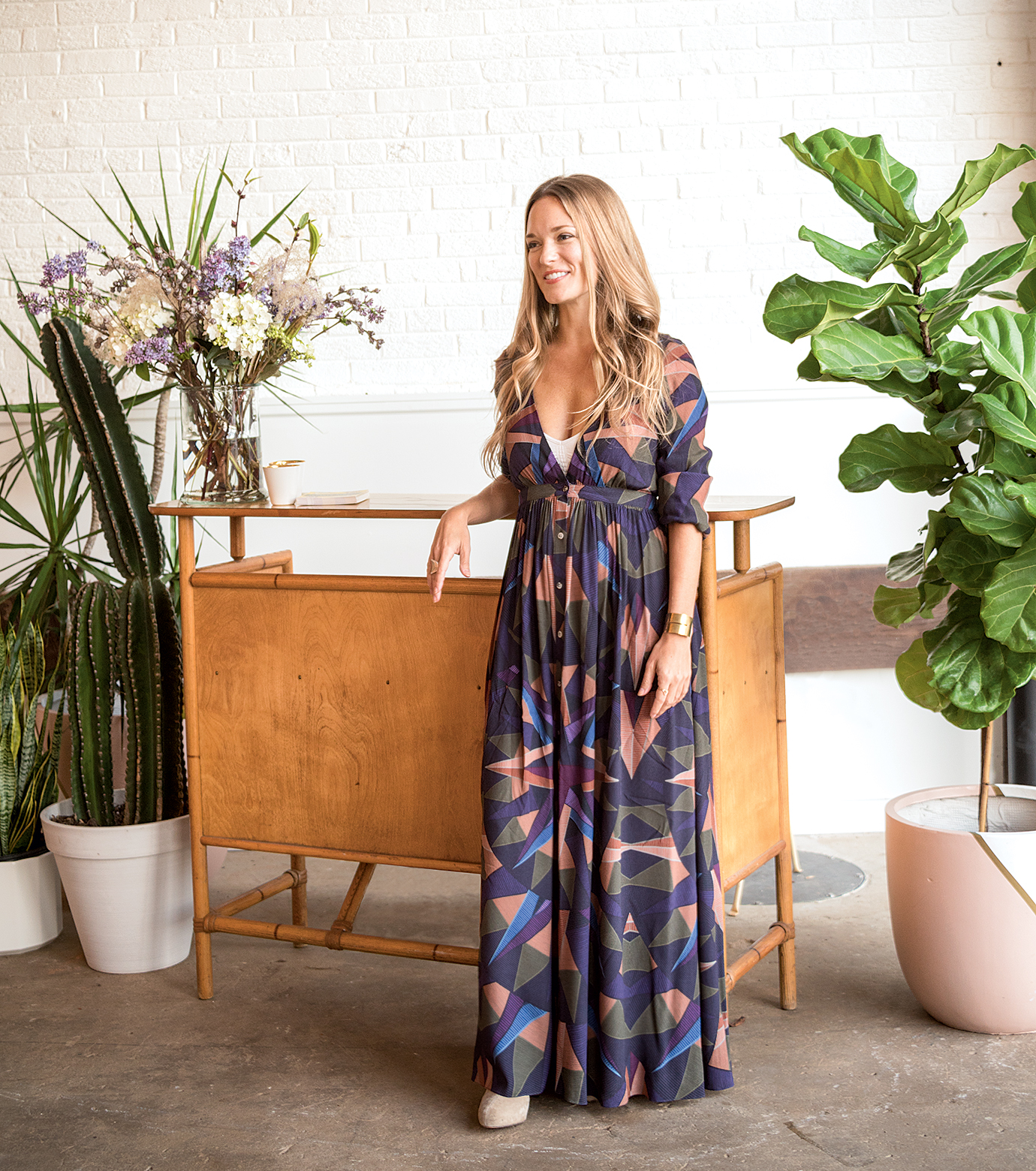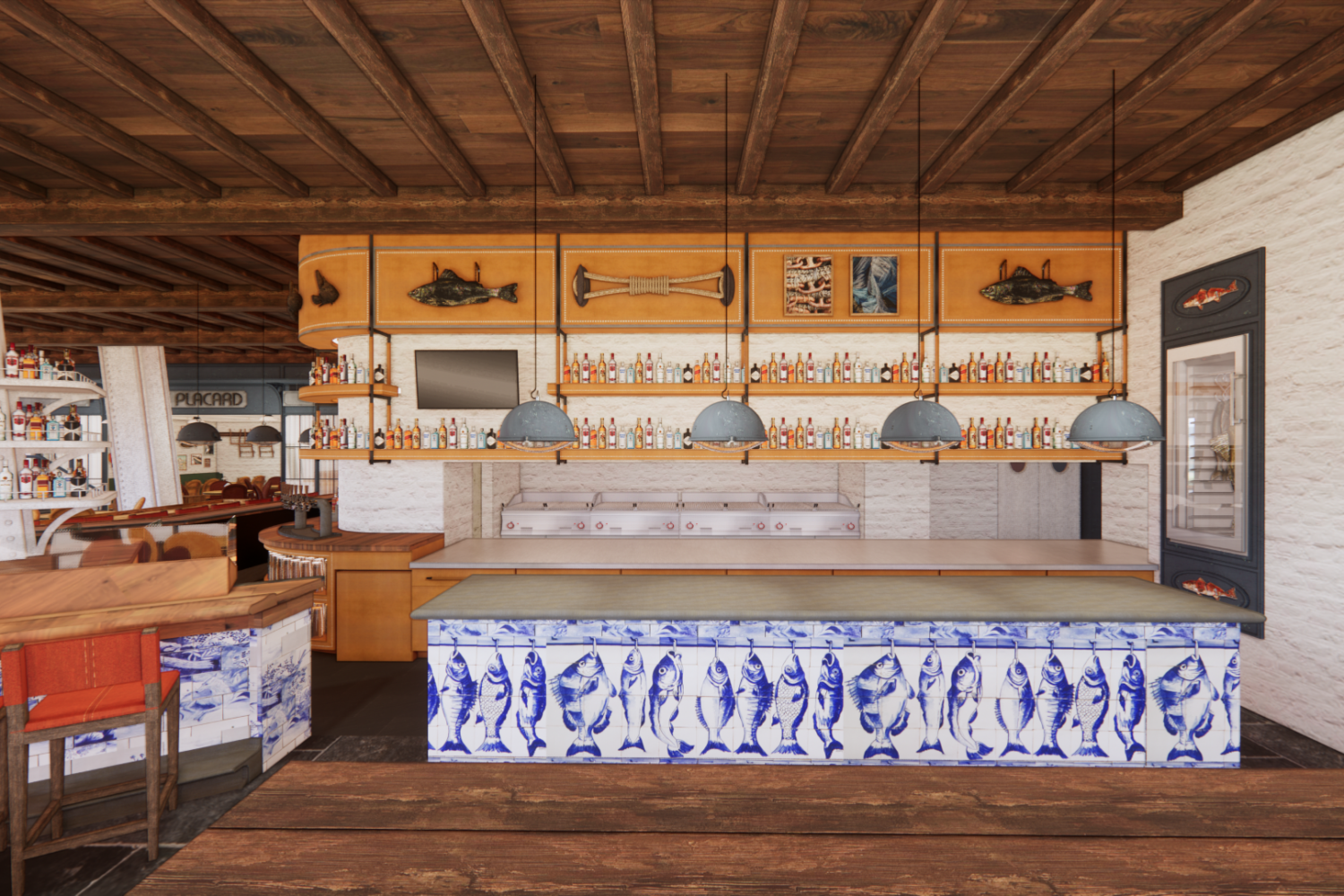As the 14th Street corridor has grown into a hub for national chains like Room & Board and West Elm, some independent retailers have struggled. But one business has managed not just to survive but to flourish in an increasingly challenging small-business climate.
Launched in 2012 in Union Market, the home-goods store Salt & Sundry opened its first freestanding shop four years ago, on S Street near 14th. After expanding to a larger space nearby and opening a plant-focused sister store, Little Leaf, the company is now taking on its biggest project yet: an ambitious multipurpose space in Eckington called the Sun Room, which quietly began hosting events in October.
The new venture is in a turn-of-the-century warehouse that was originally a bakery for Nabisco National Biscuit Co. The idea was to build a sort of playroom in which Salt & Sundry founder Amanda McClements can host workshops, panel discussions, pop-up dinners, and other events. It will also be a central distribution center that could facilitate additional stores if she decides to expand even more.
It’s a big move, but McClements always wanted the company to be more than just a boutique. “When I floated the idea of a home-goods store to people, they would say, ‘Doesn’t everybody buy everything on Amazon?’ ” she recalls. “So there was certainly a fear that I couldn’t actually make a brick-and-mortar shop work. But what I had in mind was really a gathering place.”
Before opening her first store, McClements was a journalist, best known for writing a food column in Roll Call. The idea for a stylish, carefully curated housewares store hit her one day in 2011 while she was searching for gifts from independent local producers, and less than a year later she began peddling artisanal candles, shibori-dyed linens, and other products at Union Market. Up to that point, her only retail experience had been a brief high-school job at a sporting-goods store.
Salt & Sundry’s appeal goes beyond how well it nails the boho-chic aesthetic. Part of what makes it stand out is McClements’s emphasis on creativity and community. She loves to champion fledgling local brands and use her storytelling skills to get customers excited about the products she sells—what one former employee refers to as her “cool girl” effect.
“I often feel like the stores look a little chaotic, but then I’ll hear from other people that it’s so cohesive, that it has this strong point of view,” McClements says. “The common denominator is always just that it is something I liked.”
The Sun Room takes her aesthetic even further, with a vibe she thinks of as “1970s surf shack”—a pretty good description of the founder herself, whose wavy hair and penchant for beachy caftans stand out in buttoned-up Washington. “Pretend like we live right on the ocean—that’s my philosophy,” she says.
As Salt & Sundry has grown more successful, McClements has become something of a mentor within DC’s retail community. When she agrees to stock an independent potter or textile maker, that alone can provide the boost that allows artisans to establish their business.
A lot of the doom-and-gloom conversation is about the large retailers who have perhaps lost connection with their customer base.
One example is jewelry designer Mallory Shelter, a former Salt & Sundry employee who often wore her own creations to work. McClements noticed how many customers complimented her on the pieces and encouraged her to ramp up her business. Soon enough, she started selling Shelter’s products in the store, and the jewelry was such a hit that Shelter recently opened a namesake boutique across the street from Union Market.
Of course, that location is just steps from the original Salt & Sundry. But McClements says she doesn’t see it as competition. Instead, she thinks building a locally focused retail community is good for both store owners and shoppers. “A lot of the doom-and-gloom conversation is about the large retailers who have perhaps lost connection with their customer base,” she says. “When you look at smaller niche retailers that are able to thrive in supportive communities, the picture is much less bleak.”
There are still plenty of challenges, though, especially finding affordable space in viable locations. Another tough reality is that neighborhood pioneers can often suffer due to their own success. Redeem, a clothing boutique that helped turn 14th Street into a shopping destination when it opened 12 years ago, recently had to close because it could no longer afford the rent in what’s now a premium area.
But McClements is proof that homegrown enterprises can still thrive here if they have something distinctive to offer. “The small-business grind isn’t easy,” she says, “but I feel optimistic.”
This article appears in the December 2018 issue of Washingtonian.



















